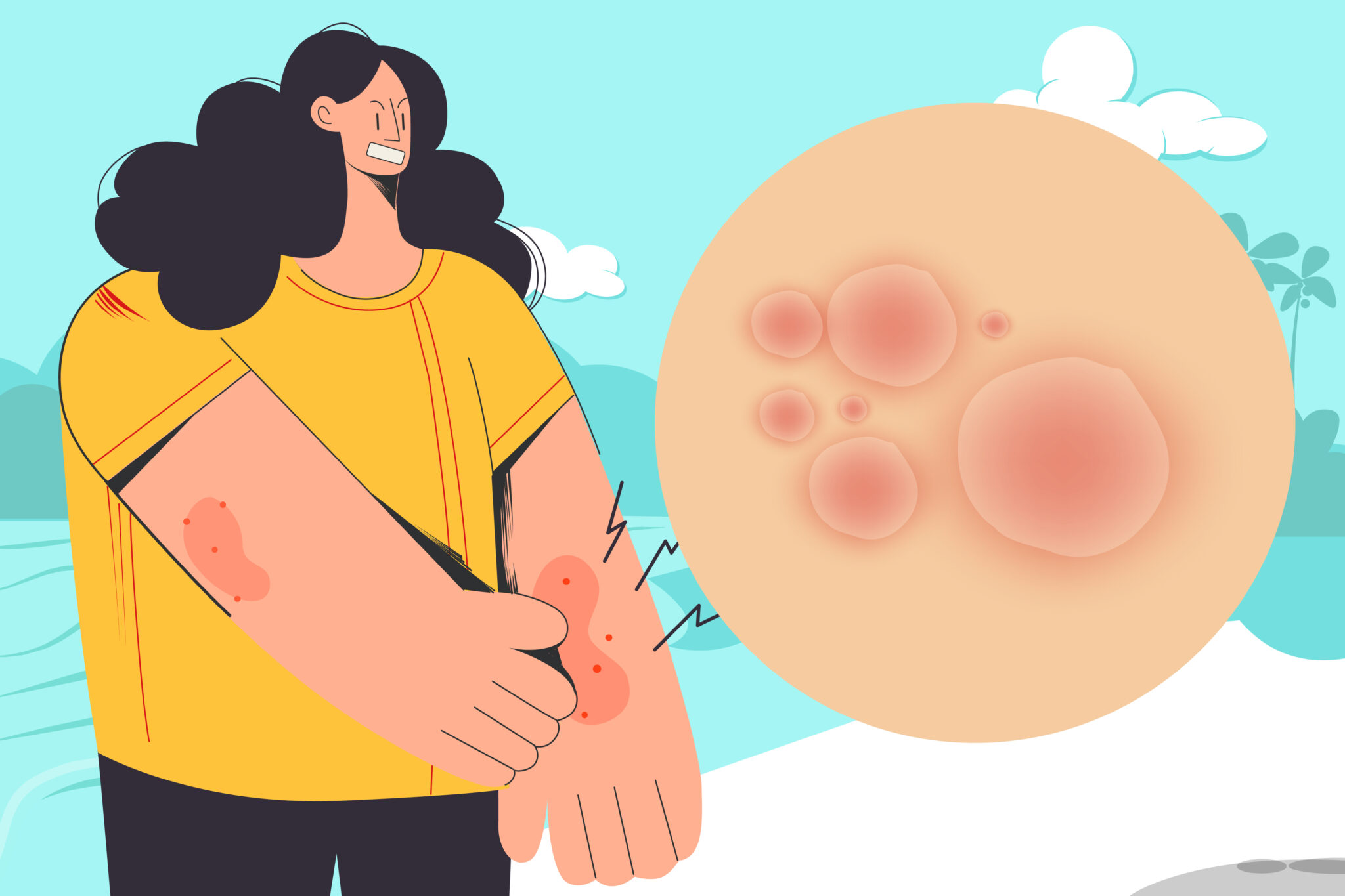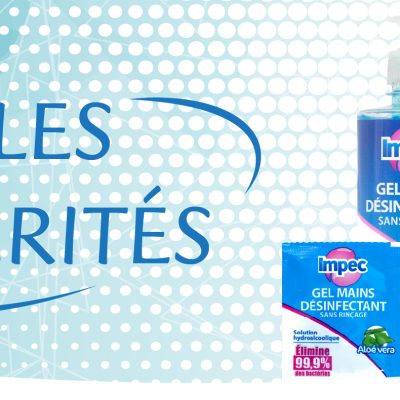Skin irritations can stem from various sources, including hard water, which is present in the water we use for showering. This element varies in concentration depending on the hardness of our tap water.
Hard water, or limestone, is easily recognizable as it tends to deposit as limescale on domestic fixtures, leaving them stained and dull. On the skin, the “lime deposit” manifests as dryness or tightness, which can worsen and lead to irritation.
Reducing the amount of limescale in water can be achieved by installing a water softener. However, this solution may not be accessible to everyone. Fortunately, selecting the right skincare products can also help minimize its effects on the epidermis.
How to combat the effects of hard water on the skin?
Details below.

THE EFFECTS OF HARD WATER ON THE SKIN
Hard water acts on the skin by causing a sensation of tightness after showering. It’s important to note that these sensations are caused by the deposition of calcium and magnesium ions in the form of crystals on the skin. The epidermis becomes particularly dry, and for sensitive skin, this can quickly lead to:
- Irritations
- Redness
- Itching
In severe cases, these irritations can even result in skin conditions such as eczema or psoriasis. Additionally, hard water affects the scalp and, more specifically, its hydrolipidic film, which usually ensures skin hydration and protects the scalp from external aggressions.
Due to hard water, the scalp becomes chronically irritated, leading to dandruff and dryness of the hair shafts. If your shower water is particularly hard, investing in a good anti-dandruff shampoo is advisable, as it will purify the scalp.
SOLUTIONS TO MINIMIZE THE EFFECTS OF HARD WATER ON THE SKIN
There are several good practices to prevent from irritations caused by hard water on the skin:
Take lukewarm or cold showers:
Did you know that the hotter is the water, the higher is its calcium content? Heating ions are precisely what crystallize and form this irritating layer on the skin. To minimize limescale, the first solution is to take lukewarm or cold showers whenever the climate permits.
If you cannot do without hot water, you can rinse with cold water at the end of the shower to “remove” the deposit on the skin. Moreover, this practice is also believed to have benefits against skin sagging.
Choose your skincare products wisely:
Selecting the right skincare products is an effective way to minimize irritations caused by hard water on the epidermis.
Chose gentle cleansing products that clean the skin without further irritation. Some shower gels even moisturize the skin after use, thanks to ingredients such as honey and coconut. By choosing these products, you can take care of your skin from the shower and feel less tightness after water contact.
Also, consider using a gentle hand wash product that provides softness and hydration after use, preventing dry hands, especially in cold weather.
Additionally, since the shower should always be followed by a hydration ritual, choose moisturizing creams with a high content of fatty ingredients. With a good cream or moisturizing milk, you will experience less skin tightness after bathing. If your skin is particularly dry, you can alternate between moisturizing cream and vegetable oil to nourish and soften the skin. Shea butter, sweet almond oil, and argan oil are excellent allies in effectively combating “crocodile skin.”
Dry gently:
While skincare products are important, the drying process is equally crucial. It’s essential not to further irritate your skin by rubbing it with a rough towel.
Instead, gently pat the skin with a microfiber or bamboo fiber towel, as these materials are less irritating to the skin. This gesture helps prevent drying out your epidermis before applying moisturizer.






